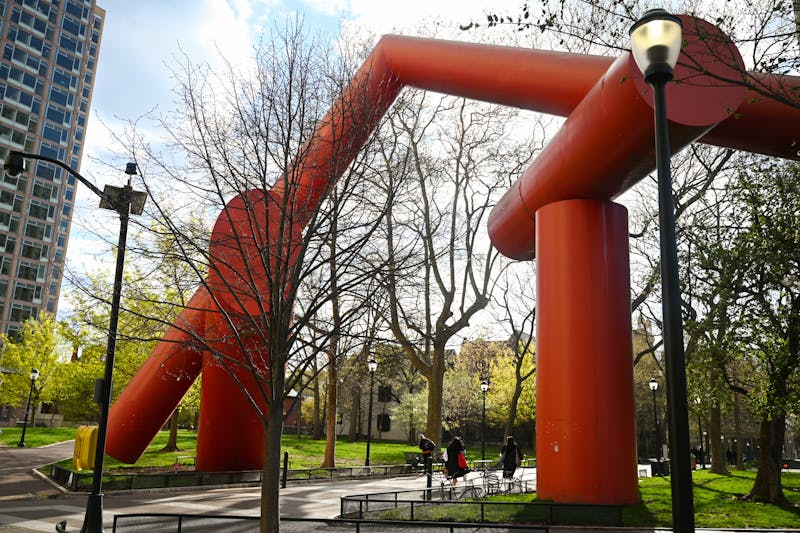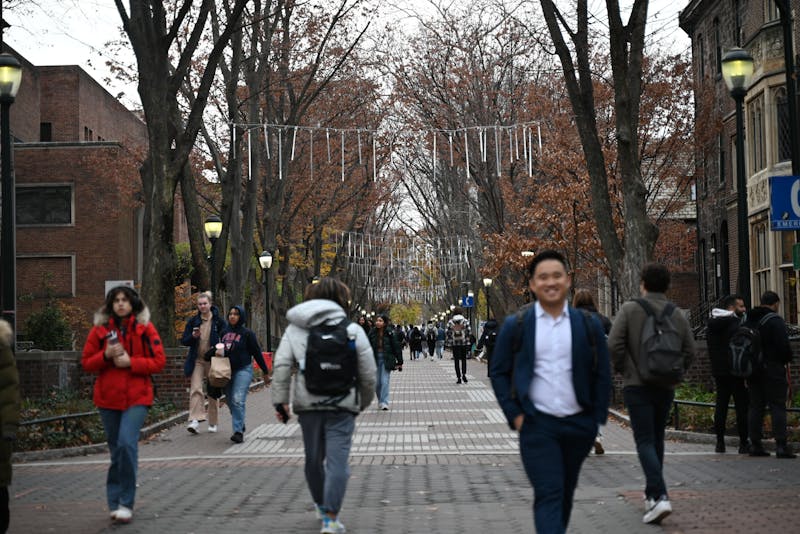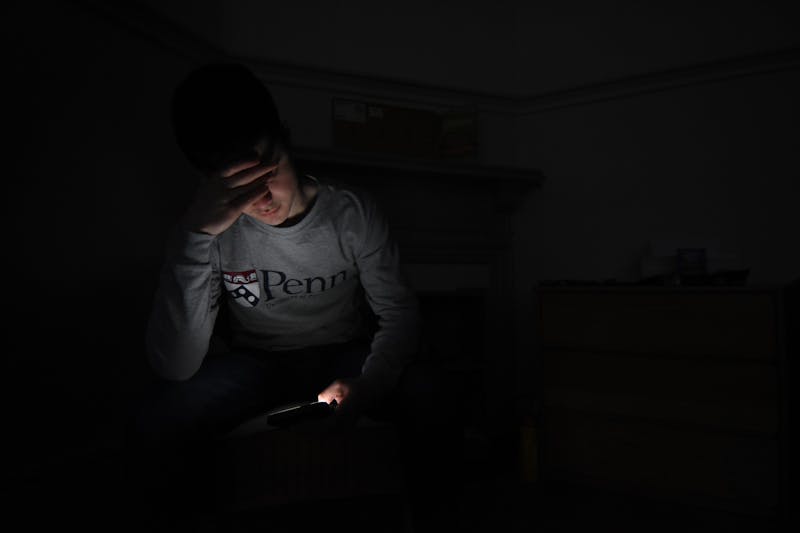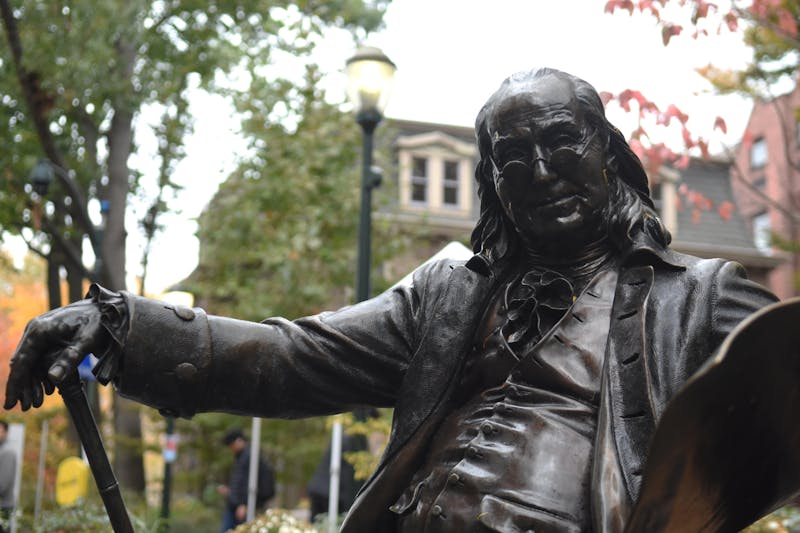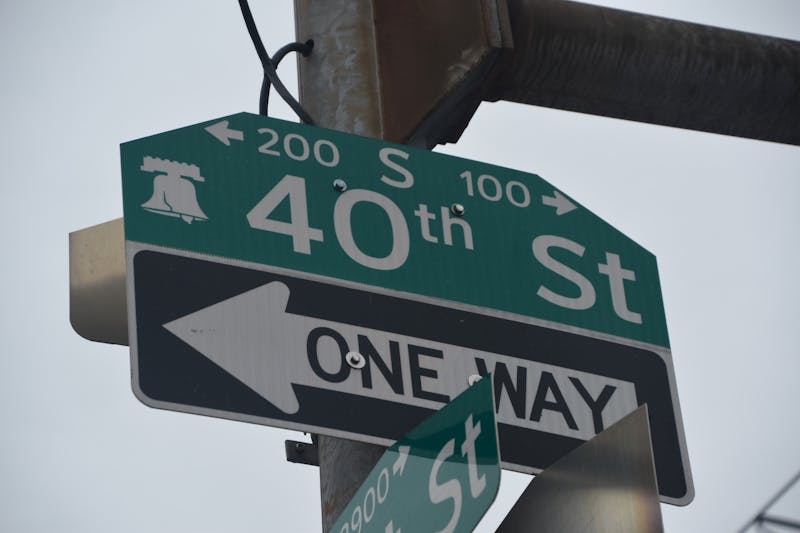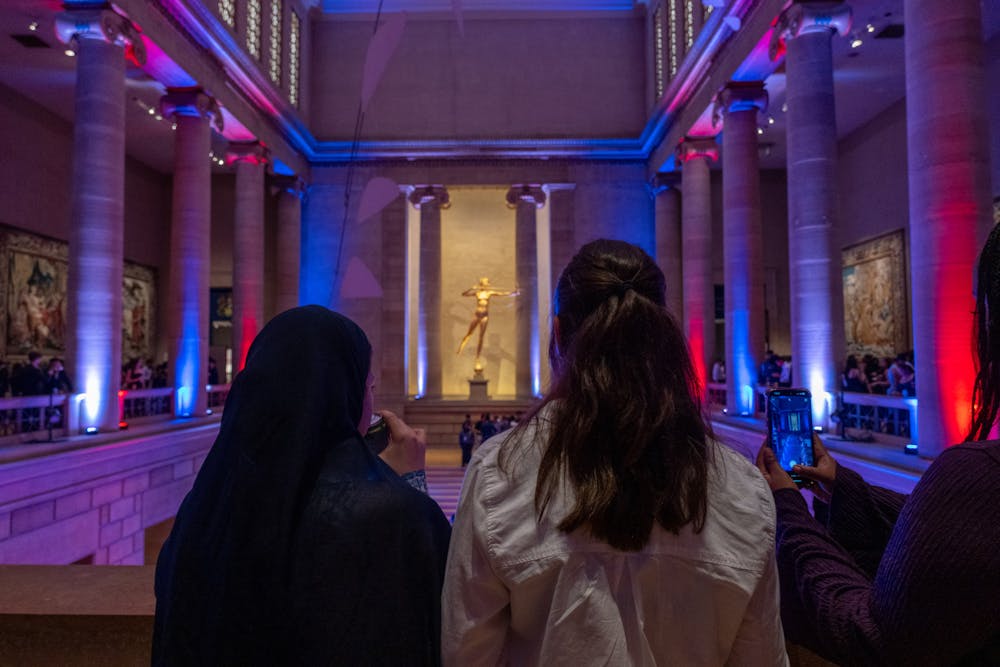
“A picture-perfect night” is the best way to describe the Class of 2028’s evening gala at the Philadelphia Museum of Art, a beloved NSO tradition. The foyer was lit up in Penn’s red and blue as students snapped selfies of themselves munching on baba ganoush and dancing to songs like “Carnival” by Ye. Such a scene just screamed: Welcome to the Ivy League!
It was also the perfect backdrop for another Penn tradition: the problematic tendency of SABSing, seeing and being seen. I first discovered this term while reading “28 Penn phrases the Class of 2028 should know” in my newly decorated Hill dorm. But until the gala, I didn’t understand why SABS deserved recognition as part of the Penn student lingo.
As my new friends and I frolicked around the impressionist gallery, we stumbled upon a group of our classmates posing in front of some Monet. The designated photographer for the group directed them to “tilt their heads to the right” and “smile with less teeth.” I suddenly felt like an intruder, sneaking up on an artist at work before their painting was complete. Their photos popped up on my Instagram the next day. In them, they seemed so effortlessly fun and sophisticated. But, I was there when that moment was constructed rather than captured. I’d seen the posing and bickering. One of my new friends scoffed that they hadn’t even looked once at the world-renowned paintings in front of which they were posing. Not once.
At this point, you may be thinking I’m such a hater, that I’m ridiculing my classmates for their apparent obsession with their image. I don’t intend to. After all, I’m just like them.
Moments after I saw their posts, I received my friend group’s pictures from the gala. In it were hundreds of photos of us staring into the sunset, oh-so-oblivious to the museum and people that surrounded us. I suddenly became conscious of my own tendency to SABS. I, too, was the poster girl for a student body — but even more than that, a generation — obsessed with seeming rather than being. I, too, was smiling for the camera, not because of the moment.
Since then, it has become clear that seeing and being seen, as it manifests uniquely online, is a college student’s unconscious pastime. From frat parties to late-night study sessions, we experience quintessential college moments through the vision of tomorrow's Instagram page, TikTok video, or LinkedIn update. After all, did the moment really happen if there isn’t an audience corroborating your experience, observing it, judging it?
In our digital world, there is a built-in attention incentive to SABS. Social media is social currency. Rush chairs examine your Instagram before deciding to accept you, potential girlfriends and boyfriends look at your Snapchat before deciding to date you, and new classmates ask for your LinkedIn before deciding to like you. To be meaningful, you must be worthy of being visible.
However, I fear that our obsession with being seen, with performing online, costs us our freedom and authenticity. The pressure to constantly build your personal brand and reaffirm yourself as worthy of attention has enabled social media to become the lens through which we understand ourselves. We even derive pleasure from doing so. A positive comment on a post and boom, dopamine rush. In the process, we become servants to our audience, because who are we without them?
As W.H. Auden once said, “Human beings never become something without pretending to be it first.” Would you truly be who you are now if you weren’t always pretending? The question itself might indicate why so many college students eventually face an identity crisis. Simply put, our curated persona robs us of the opportunity to simply be, to explore our authentic selves, which supposedly college is all about.
Absolute freedom from society’s obsession with the performative self, with SABSing, is impossible. But, we can lessen its power over our experience of the world by becoming conscious of it.
The next time you find yourself itching to take a photo, ask yourself why. Consider for whom you want to capture this moment. Pull up your Instagram right now. For each post, what were you trying to prove? To be clear, I’m not saying never take or post another photo. Nor am I undermining the fact that how you're perceived on social media can have real-world consequences.
What I am saying is that we must be the agents of our own self understanding. It is this consciousness that gives us back our power, our freedom, our ability — as inscribed on the windows of Rodin College House — "to be rather than to seem.” We don’t have to be “picture perfect.” We can be more like Monet — bright, wild, and indecipherable to anyone but the artist, anyone but ourselves.
SOLEMEI SCAMARONI is a College first year studying philosophy, politics, and economics from Houston. Her email is solemei@sas.upenn.edu.
The Daily Pennsylvanian is an independent, student-run newspaper. Please consider making a donation to support the coverage that shapes the University. Your generosity ensures a future of strong journalism at Penn.
Donate






